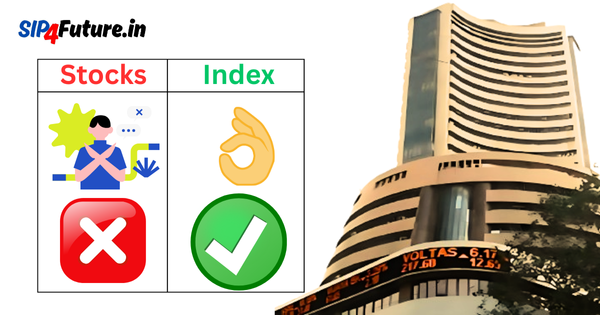Tata Consultancy Services (TCS), India’s largest IT services company, continues to solidify its reputation as a reliable investment choice with its announcement of a final dividend of ₹30 per share for FY25, setting June 4, 2025, as the record date. This move, coupled with strategic acquisitions, an expanded SAP partnership, and a robust global market presence, underscores TCS’s commitment to delivering shareholder value while navigating a dynamic economic landscape. In this article, we dive deep into the TCS dividend 2025 announcement, its implications for investors, and the broader factors influencing the company’s stock performance, including sector trends, government policies, and global market conditions.
What Is the TCS Dividend 2025 Announcement?
On April 30, 2025, TCS announced a final dividend of ₹30 per equity share for the financial year ending March 31, 2025, subject to shareholder approval at the Annual General Meeting (AGM) scheduled for June 19, 2025. If approved, the dividend will be paid on June 24, 2025, to shareholders listed on the record date of June 4, 2025. This announcement follows TCS’s consistent track record of rewarding shareholders, with a total dividend payout of ₹96 per share in FY25, including interim dividends of ₹10 each in July and October 2024, and a special dividend of ₹66 in January 2025.
The final dividend reflects TCS’s strong financial health, with FY25 revenues reaching ₹2,55,324 crore, a 6% year-on-year growth, despite a 1.7% decline in net profit to ₹12,224 crore in Q4 FY25. The company’s ability to maintain high dividend yields—currently at 3.67% as of April 30, 2025—makes it a standout in the IT sector.
| Dividend Details | FY25 |
|---|---|
| Final Dividend | ₹30 per share |
| Interim Dividends | ₹10 (July), ₹10 (October) |
| Special Dividend | ₹66 (January) |
| Total Dividend | ₹96 per share |
| Dividend Yield | 3.67% |
| Record Date | June 4, 2025 |
| Payment Date | June 24, 2025 |
For more details, visit the TCS Investor Relations page or check the NSE website.
The TCS dividend 2025 announcement is a boon for shareholders, particularly for long-term investors like Tata Sons, which holds a 71.77% stake in the company. With a total payout of ₹44,962 crore in FY25, the dividend reinforces TCS’s commitment to returning value to its investors. For retail investors, the ₹30 per share final dividend translates to a significant cash inflow, especially for those holding large volumes of shares.
The dividend yield of 3.67% is notably higher than the industry average for IT stocks, making TCS an attractive option for income-focused investors. However, investors must purchase shares before the ex-dividend date (typically one day before the record date, June 4, 2025) to be eligible for the payout. As noted on Moneycontrol, TCS’s consistent dividend history—91 dividends since 2004—underscores its reliability as a dividend stock.
Moreover, the dividend announcement comes at a time when TCS’s stock price on the NSE stood at ₹3,453.70 on May 1, 2025, reflecting a slight 0.54% decline. Despite this dip, the positive sentiment surrounding the dividend and strategic corporate moves suggests potential for price recovery, especially as global IT spending stabilizes.
When Will TCS’s Strategic Moves Shape Its Market Position?
TCS’s recent corporate actions extend beyond dividends, with acquisitions and partnerships signaling its intent to strengthen its global IT services leadership. In early 2025, TCS completed the acquisition of two real estate subsidiaries, enhancing its operational footprint in India. This move aligns with the company’s plan to establish a new IT campus in Andhra Pradesh, leased at a nominal rate, as reported by INDmoney.
Additionally, TCS expanded its partnership with SAP to focus on Generative AI and cloud adoption. This collaboration aims to help clients leverage AI-driven solutions for digital transformation, positioning TCS as a leader in next-generation technologies. The partnership builds on TCS’s existing expertise in AI, as evidenced by its work with clients like UPM and Avianca, where it has implemented scalable, AI-powered IT infrastructure.
These strategic initiatives are critical in a global market where IT spending is rebounding. According to a Gartner report, global IT spending is projected to grow by 8.1% in 2025, driven by demand for cloud services and AI solutions. TCS’s focus on these areas ensures it remains competitive against peers like Infosys and HCL Technologies.
How Do Sector Trends Influence TCS’s Performance?
The IT services sector, which contributes significantly to India’s GDP, is a key driver of TCS’s performance. In FY25, TCS’s revenue breakup highlights its diversified portfolio, with Banking, Financial Services, and Insurance (BFSI) accounting for 32.6% of revenue, followed by Consumer Business (15.9%) and Life Sciences & Healthcare (10.9%). This diversification cushions TCS against sector-specific downturns, as noted on Screener.in.
However, the IT sector faces challenges, including delays in client decision-making and project ramp-downs, as highlighted by TCS CEO K Krithivasan. These issues, coupled with global macroeconomic uncertainties, have led to a 27-30% correction in IT stocks, including TCS, since their post-COVID highs. Despite this, TCS’s strong order book, valued at $10.2 billion in Q4 FY25, signals robust demand for its services.
Government initiatives, such as the Digital India program, have bolstered the IT sector by promoting digital infrastructure and cybersecurity. TCS’s partnerships with public sector banks like Bank of Baroda, where it implements financial inclusion solutions, align with these initiatives, enhancing its domestic market presence.
What Role Do Government Decisions Play in TCS’s Stock Price?
Government policies significantly impact TCS’s stock price, particularly those related to taxation, trade, and digital transformation. The Indian government’s push for self-reliance in technology under the Atmanirbhar Bharat initiative has encouraged TCS to invest in local R&D and talent development. This aligns with TCS’s promotion of 1.1 lakh employees in FY25, as reported by INDmoney.
However, global trade policies, such as potential U.S. tariffs under discussion in 2025, pose risks. As a major exporter, TCS relies heavily on the U.S. market, which accounts for a significant portion of its revenue. Tariff concerns have contributed to stock volatility, with TCS shares declining 21% year-to-date in 2025. The U.S. Department of Commerce has signaled potential trade restrictions, which could indirectly affect TCS’s clients, leading to reduced IT spending.
On the positive side, India’s stable corporate tax regime and incentives for IT exports have supported TCS’s profitability. The company’s zero-debt status and 51.24% Return on Equity (ROE) in FY25, as per Moneycontrol, reflect its ability to navigate regulatory challenges effectively.
How Does the Global Market Scenario Affect TCS’s Trading Conditions?
The global market environment in 2025 presents both opportunities and challenges for TCS. Rising U.S. Treasury yields and a stronger dollar have led to foreign institutional investor (FII) outflows from Indian markets, impacting TCS’s stock price. As of March 31, 2025, FII holdings in TCS dropped to 12.04% from 12.68% in December 2024, per Economic Times.
Conversely, TCS’s global presence in 55 countries and its leadership in AI and cloud services position it to capitalize on recovering IT budgets. The company’s partnerships with global giants like Google Cloud and NVIDIA, recognized by awards such as the NVIDIA Rising Star Consulting Partner of the Year, enhance its credibility. TCS’s sponsorship of marathons, generating $2.25 billion for local economies, also boosts its brand globally, as noted on TCS’s website.
The stock’s beta coefficient of 0.92 indicates lower volatility compared to the broader market, making it a stable investment during turbulent times. However, a P/E ratio of 25.88 suggests a premium valuation, which may deter value-focused investors, as discussed in posts on X.
What Are the Historical Returns of TCS Stock?
TCS has delivered impressive long-term returns, making it a favorite among investors. Over the past five years, the stock has surged 105.30%, and over ten years, it has soared 207.37%, per Business Standard. However, its three-year return of 0.31% lags behind the Nifty 50’s 40.83%, reflecting recent market corrections.
| Period | TCS Return | Nifty 50 Return |
|---|---|---|
| 1 Year (2024-25) | -21% | N/A |
| 3 Years (2022-25) | 0.31% | 40.83% |
| 5 Years (2020-25) | 105.30% | N/A |
| 10 Years (2015-25) | 207.37% | N/A |
The stock’s 52-week range of ₹4,585.90 to ₹3,313.00 highlights its volatility, driven by global economic shifts and sector-specific challenges. Historical data from Yahoo Finance shows TCS’s resilience, with its all-time high of ₹4,592.25 reached on August 30, 2024.
What Are the Future Price Targets for TCS Stock?
Analysts remain cautiously optimistic about TCS’s growth prospects, citing its strong fundamentals and strategic initiatives. As of April 2025, 41 analysts tracked by Economic Times have set a median 12-month price target of ₹3,861.27, implying a 11.8% upside from the current price of ₹3,453.70. The high estimate is ₹4,770.00, while the low is ₹3,000.00.
- Motilal Oswal: Recommends a “Buy” with a target of ₹5,000, citing recovery in BFSI and discretionary spending.
- Citi: Maintains a “Sell” rating with a target of ₹3,950, due to near-term demand concerns.
- Geojit BNP Paribas: Suggests a target of ₹3,671, projecting a 6.61% upside based on stable order bookings.
These projections reflect TCS’s potential to rebound as global IT demand strengthens, though risks like trade tariffs and client spending delays remain.
How Can Investors Approach TCS Stock in 2025?
For investors, TCS offers a compelling mix of stability, dividends, and growth potential. The TCS dividend 2025 announcement, with a ₹30 per share final payout, enhances its appeal for income-focused portfolios. The company’s strategic moves, including its SAP partnership and real estate acquisitions, position it for long-term growth in AI and cloud services.
However, investors should remain mindful of global market risks, such as U.S. trade policies and FII outflows, which could pressure the stock price. Consulting a certified financial advisor, as recommended by Business Today, is crucial before making investment decisions.
To stay updated on TCS’s performance, check BSE for real-time stock data or visit NSE for dividend announcements and financial reports.
Disclaimer: The information provided in this article is for educational purposes only and does not constitute investment advice. Stock market investments are subject to risks, and past performance is not indicative of future results. Readers are encouraged to conduct thorough research and consult a qualified financial advisor before making any investment decisions. The author and publisher are not responsible for any financial losses incurred from relying on this information.




